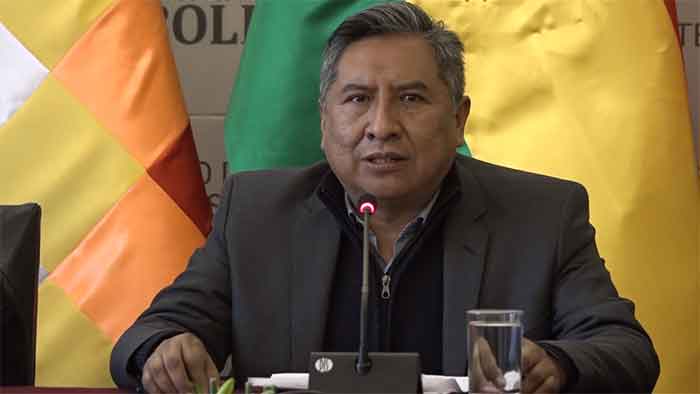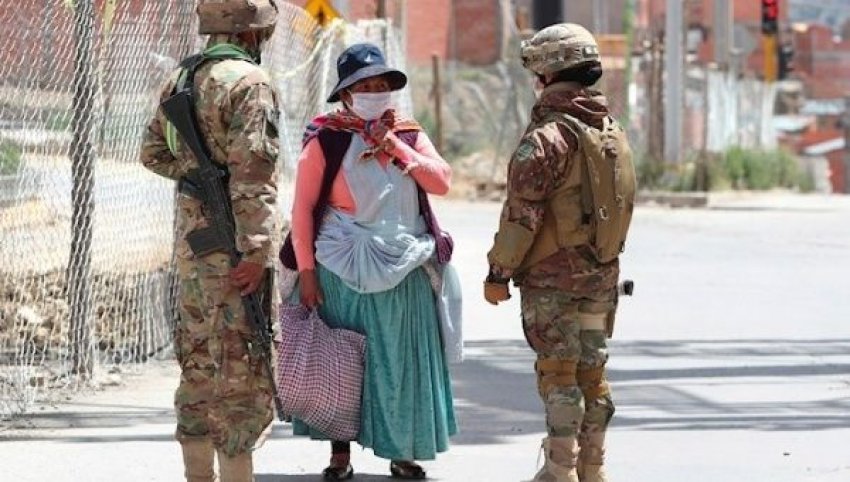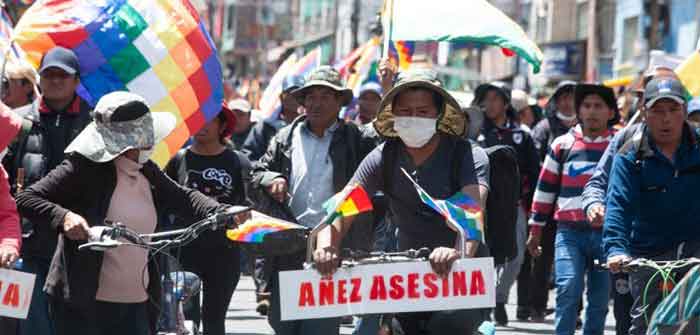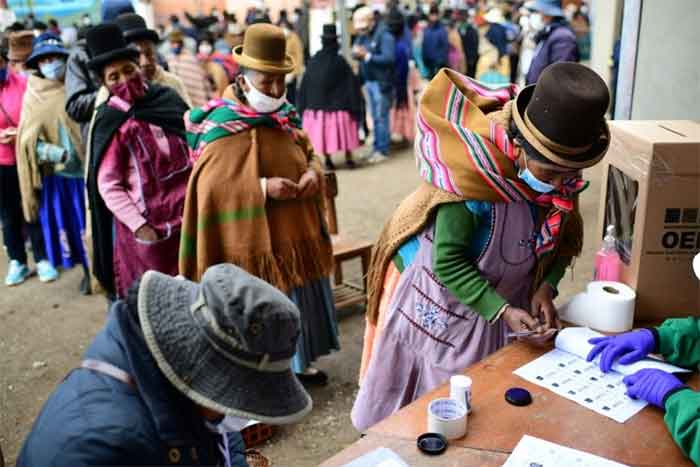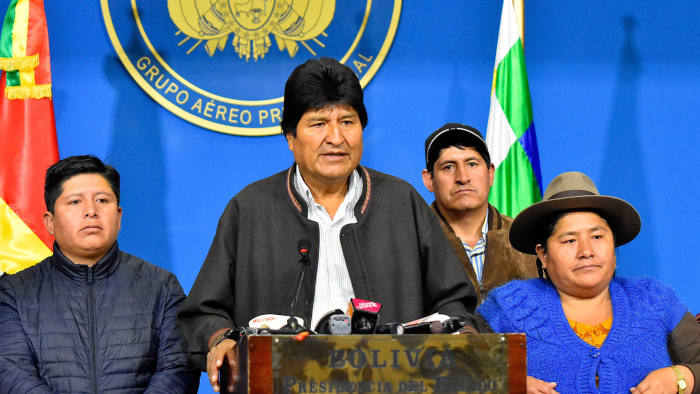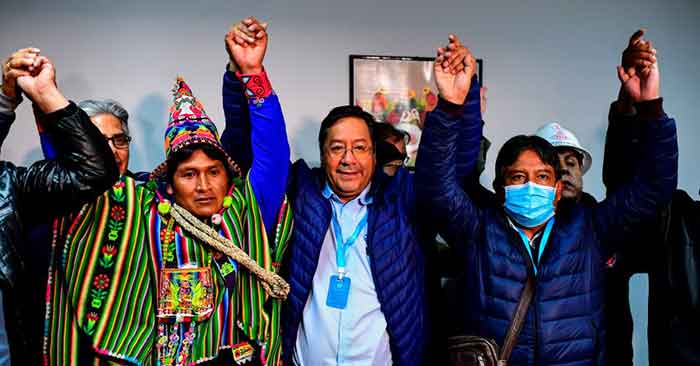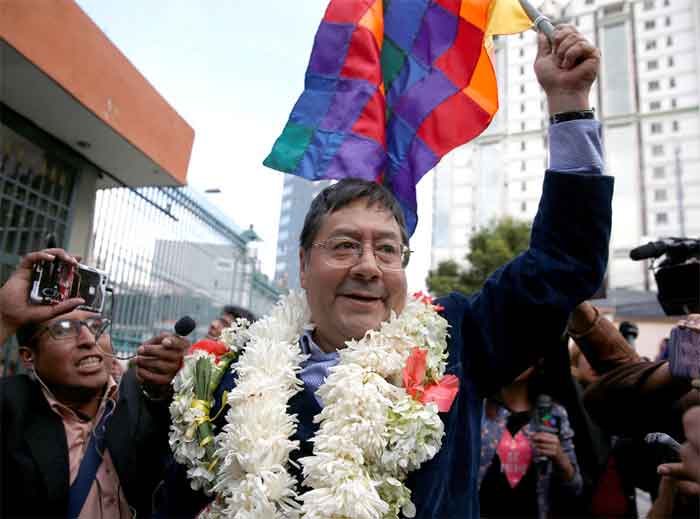
In Bolivia, the Movement Toward Socialism (MAS) – a major leftist political force – has returned to power following a thumping victory in the 2020 elections. The MAS presidential candidate Luis Arce obtained 55.09% of the votes, decisively ahead of the neoliberal candidate Carlos Mesa and the right-wing extremist Luis Fernando Camacho who garnered 28.83% and 14% of the votes, respectively. The triumph of MAS in Bolivia is highly significant since it follows hard on the heels of the 2019 US-backed coup which violently overthrew the MAS president Evo Morales and attempted to re-institute neoliberalism through blood and bullets. Headed by the de facto president Jeanine Áñez (a religious bigot), the fascist coup government genuflected to the American empire, joined the conservative Lima Bloc — a group of 12 Latin American nations determined to subvert the Bolivarian Revolution — exited leftist regional forums, kicked out Cuban doctors and re-established ties with Israel. With the re-election of the MAS, it has been demonstrably shown that Bolivians don’t have any liking for the barbaric blueprint of imperialism and socialism still throbs through the nation’s body.
The Socialist Project
There are many reasons to explain Bolivians’ continued support for the MAS. In spite of state aggression aimed at terrorizing citizens, the oppressed masses remained steadfast in their refusal of neoliberalism and organized sustained mobilizations to resist imperialist forces. Behind this courageous anti-imperialism, we can locate a primary motivating factor: MAS’s socialist project. With the help of this socialist project, the MAS radically re-configured a turbo-capitalist economy, allowing poor people to take hold of their own lives and move beyond the existentially crippling effects of necro-political neoliberalism.
Under Morales’ administration, a new constitution was promulgated in 2009 which proclaimed: “We have left the colonial, republican and neo-liberal State in the past.” With this departure from neoliberalism, changes soon took place within the country. In the first eight years of the Morales administration, national government revenue from hydrocarbons increased nearly sevenfold from $731 million to $4.95 billion, a direct corollary of nationalization and state-led economic re-construction. Earlier, corporate interests used to take over 80% of the profits from Bolivia’s natural gas reserves. Morales effectively reversed this trend with a nationalization decree giving Bolivia more than 80% of industry profits in the form of taxes and royalties.
Increased revenues allowed the government to establish a new welfare state with Conditional Cash Transfers such as: Income Dignity that benefitted every retired Bolivian over 60 years; Juancito Pinto Bonus given to poor families to send their children to school; and Juana Azurduy voucher that provided free medical support to pregnant and poor mothers. The MAS also established a number of public firms: the telecommunication company Entel, Bolivian Aviation (BOA), Productive Development Bank, the Bolivian Customs Deposits (DAB), the cargo airline company Bolivian Air Transport (TAB), television channel named Bolivia TV; and Quipus for information technology. In the 2006-2016 period, these public firms employed 120,793 people.
The new economic regime instituted by the MAS was clearly distinguishable from the previous system of perpetual exploitation. Under the previous economic architecture, the oppressed people of Bolivia were savagely suppressed by the bourgeoisie to boost profits. To take an example, trade as a percentage of Gross Domestic Product (GDP) doubled from 10% in 1989 to 18% in 1999; foreign direct investment increased from an average of $38 billion per year from 1993-1997 to $74 billion per year between 1998- 2003. Yet, common citizens did not benefit from this neoliberal growth. They protested against this endless enrichment of the few and the utter dehumanization of the masses. Out of these protests, Morales emerged as a political leader, capable of waging a war of attrition against the ossified structures of oppression.
In 2005, the top 10% of the population had 128 times more income than the bottom 10%; by 2012 this difference decreased to 46 times. From 60% in 2006, the poverty rate has fallen below 35% and the extreme poverty rate is 15.2%, down from 37.7% in 2006. From 2005 to 2015, public investment doubled from 7% of GDP to 14%, expanding the public capital stock from 78.8% to 100.5% of GDP during the same period. Between 2005 and 2019, the gross domestic product increased from $9.574 billion to $40.885 billion. Bolivia’s real per capita GDP has grown at two times the rate for Latin America and the Caribbean (LAC) since 2006. The annual per capita growth across LAC economies has been 1.6% per year since 2006; Bolivia’s real per capita GDP has grown at an average of 3.2%. This growth was accompanied by a reduction in unemployment which fell from 8.1% in 2005 to 4.2% in 2018. Life expectancy increased by nine years. From 2000 to 2019, minimum national wage increased by 153%.
The MAS government undertook significant land reforms which benefitted 800,000 low-income peasants and indigenous people, enshrined women’s inheritance rights and allowed smallholders to control most of the country’s land for the first time since the Spanish conquest. As part of this agrarian revolution, ten million acres were expropriated for redistribution from expiring logging concessions and big landowners who held lands over the limit of 25,000 acres set by the new agrarian law.
In 2013, the MAS government established state-owned banks and implemented the Financial Services Law (FSL 393) which intervened in credit allocation decisions of private banks, instituted lending quotas to a list of “productive sectors” — industrial manufacturing, agriculture, agribusiness, extraction, processing of metals, minerals, and natural gas — and limited profitability by capping interest rates. FSL 393 was a radical measure taken by the socialist administration. It acted as a counter-tendency to the financial liberalization which the country had been experiencing for many years. This unbridled liberalization included the liberalization of all interest rates in 1985, opening of the capital account, and privatization and closure of state owned banks through the 1980s and 1990s, resulting in a highly dollarized and primarily privately owned financial system by the early 2000s.
The FSL 393 led to increased financial stability, de-dollarization, reserve accumulation and increased public ownership of the economy. All this was made possible due to sustained subaltern pressure from below which combined with the legitimacy of the socialist state to initiate a program of incremental reform that decreased the importance of the private sector in the economy, weakened the power of business interests and thus, reduced the importance of disinvestment threats.
The 2019 Coup and Anti-imperialist Resistance
The 2019 coup against Morales was an imperialist effort to transform Bolivia into a neo-colony and bring a halt to the country’s socialist project. In its “2019 Investment Climate Statements: Bolivia”, the US Department of State said, “U.S. companies interested in investing in Bolivia should note that in 2012 Bolivia abrogated the Bilateral Investment Treaties (BIT) it signed with the U.S. and a number of other countries.”. BIT is a form of international law that creates legally enforceable rights and entitlements for foreign investors. Under the international system of investor protection created by BITs, private investors can sue for damages while citizens of host states have no way to take direct action. Therefore, BITs are legal instruments of capitalist power consolidation. When Morales came to power, he terminated the BITs. This was an initial indication of the socialist orientation of the MAS government which deeply troubled the US.
In another acknowledgement of MAS’ socialist outlook, the 2019 Investment Climate statement notes that “Environmental regulations can slow projects due to the constitutional requirement of “prior consultation” for any projects that could affect local and indigenous communities. This has affected projects related to the exploitation of natural resources, both renewable and nonrenewable, as well as public works projects.” Natural resources occupy a key position for American companies. According to the Country Commercial Guide (CCG) prepared by the US embassy in Bolivia, the following is one of the top five reasons to consider Bolivia for foreign investment: “Bolivia is rich in non-renewable natural resources. Mining and hydrocarbons are some of Bolivia’s largest export sectors, and there is still room to grow. In addition to presently mined minerals such as zinc, silver, lead, and tin, Bolivia boasts significant lithium deposits, which remain mostly unexploited.” From this, it is evident that American businesses were salivating at the prospect of accessing lucrative natural resources and the only barrier to this was socialism.
In order to crack open Bolivia’s economy for the unrestricted entry of American corporations, the US orchestrated a capitalist coup in 2019. The coup was designed to overtly facilitate neoliberalism. The US Department of State’s “2020 Investment Climate Statements: Bolivia”– in an implicit acknowledgment of the neoliberal leanings of the coup government – said: “In November 2019, a transitional government came to power that indicated an interest in taking additional steps to attract more FDI…Bolivia does not currently have an investment promotion agency to facilitate foreign investment. However, the transitional government is working to create such an agency in order to attract investment”.
Apart from subordinating itself to the economic exigencies of capitalism, the coup government simultaneously tried to target public companies. For instance, the new chief executive officer (CEO) of the public sector airline BOA appointed by the Áñez government declared that the airline was running on severe deficit, with no data to substantiate that claim. The new BOA manager was the chief financial officer of Amazonas, a private airline that is BOA’s main rival. Not content with destroying state companies, the new government reduced public investment by 32.5%.
Regardless of the coup government’s efforts to re-institute neoliberalism, US oligarchy’s strategy of imperialistically prying open Bolivia did not go as planned. The proletariat presented a heroic resistance to imperialist violence and continuously strategized to finally defeat it. This was bound to happen. The principal trade union federation in the country, the Bolivian Workers’ Centre (COB), actively supports Morales’s policies and economic reforms, particularly the nationalization of the hydrocarbon industry and the new labor codes and reforms implemented throughout his tenure. The coca growers’ union, known as the Tropic Federation, in the region of Chapare in the north of Cochabamba, is most loyal of all the peasants’ organizations. The Union Federation of Bolivian Mineworkers (FSTMB), an affiliate of the COB and the main union covering workers in the state-owned Bolivian Mining Corporation (COMIBOL), also supports Morales. Thinking that these workers will remain passive in the face of imperialist-fascist incursion is totally naïve.
The victory of the MAS in the 2020 elections has proven that the politico-economic fabric woven by socialist-indigenous movements can’t be torn apart by profit-seeking imperialist forces. While plutocratic putschists tried their best to fracture Bolivia’s internal social structures, the masses did not surrender to imperialism and continued to fearlessly confront the onslaught of neoliberal capitalism. In the current conjuncture, solidarity needs to be shown with the Bolivian people who have once again shown that an independent path, free from the shackles of imperialism, is possible.
Yanis Iqbal is a student and freelance writer based in Aligarh, India.
Originally published in Dissident Voice
SIGN UP FOR COUNTERCURRENTS DAILY NEWSLETTER

